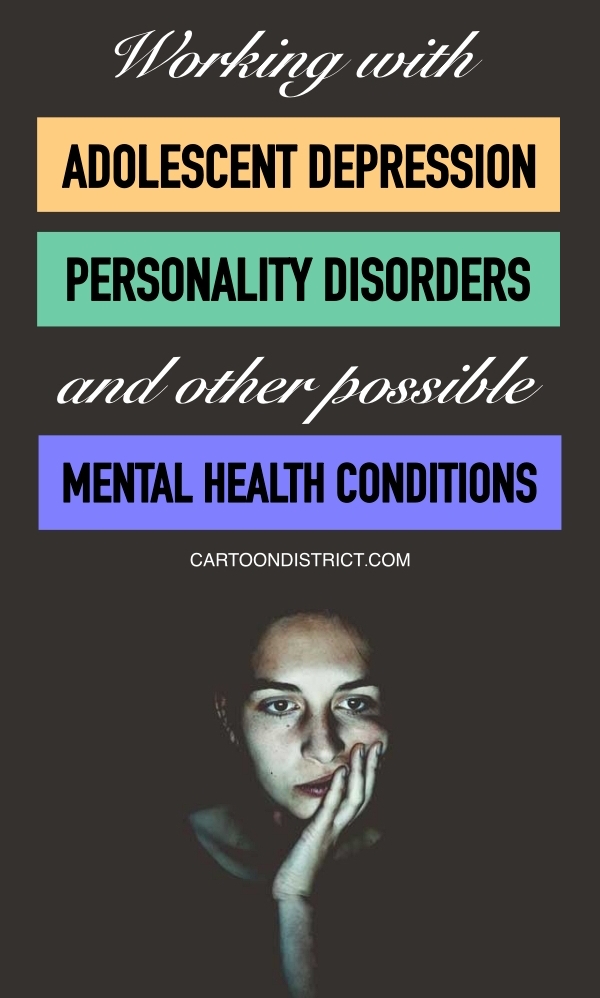Having a mental health condition isn’t exclusive to adults. There isn’t a concrete age range for depression, personality disorders, or anxiety. While signs may become more prevalent as an adult, especially if untreated, your adolescent years have a significant effect on your mental health. Just as the process of developing a mental health condition can start at an early age, though, so can awareness, identification, and treatment.

More Than Just “Growing Pains”
Unfortunately, there’s a stigma around developing children and teenagers that they’ll eventually go through a typical phase of angst and defiance. However, the emotions and changes your child is going through are caused by more than just “growing pains.” Especially as teenagers are navigating hormonal changes, social awareness, and the pressure of understanding autonomy, they’re in need of support and patience.

Instead of allowing the “phase” to take its course, it’s crucial to take this time to notice any changes in attitude, behavior, and mood your child is going through. Active listening, taking time to learn about their life outside of the home, and being a strong pillar in their support system are a few of the ways you can show them you’re available if they need you. However, it’s important to realize that sometimes they don’t even know they’re in need.
Understanding Adolescent Mental Health Needs
Teenagers need an outlet to express themselves. Defiance, resistance, and other negative attitude changes are most often the result of a last-ditch effort to be seen and heard. While it’s not necessarily the fault of parents – how can you know something’s wrong when you’re not told? – it is important to notice these changes in behavior and show support and concern.

Finding a mental health professional that connects with your teenager has become more widely accessible. With online resources like BetterHelp, it’s easier to schedule a virtual appointment around their schedule and needs. Having an experienced professional guiding them through mental health difficulties is crucial for teenagers that may be uncomfortable bringing up their problems to even trusted mentors around them.
Signs and Symptoms of Adolescent Mental Health Conditions

If you’re concerned about your teenager’s mental health, take the time to familiarize yourself with the early signs of a developing problem. It’s important to note that symptoms and expressions will vary among teenagers for a number of reasons. Use these as a guideline to start paying attention to subtle changes and consider talking to a professional for their opinion on the developments.
- Problems at School: Whether they’re struggling with grades, social anxiety, or difficulties with teachers, school life can contribute significantly to a teenager’s stress levels. During this age, many people become focused on the opinions of others – fitting in with friends, appealing to parental expectations, and finding mentors to look up to. Not addressing the stress can lead to an increased risk of conditions like anxiety, depression, and other panic disorders.
- Negative Self-Image: Many teenagers are going through the difficulty of understanding autonomy, trying to discover their personality and style, and struggling with body image. It’s important to pay attention to an increase in self-deprecating jokes, complaints about appearance, and other signs of negative self-esteem.
- Reckless Behavior: Skateboarding and staying out an hour late aren’t necessarily signs of a mental health condition. However, increased interest in dangerous behaviors or pushing their limits could be a sign of depression. Underage drinking, unprotected sex, and reckless driving are common examples.
- Avoidance or Aggression: If your teenager is suddenly cold and distant from you, don’t brush it off as a typical phase. Outbursts, picking fights, and challenging authority should be addressed and discussed in an open environment. Instead of jumping to punishment for lashing out, it can be much more productive and helpful for you to sit down as a family and talk things through, giving them the floor to bring up any recent stress or discomfort that’s brought on this aggression.

Marie Miguel has been a writing and research expert for nearly a decade, covering a variety of health-related topics. Currently, she is contributing to the expansion and growth of a free online mental health resource with BetterHelp.com. With an interest and dedication to addressing stigmas associated with mental health, she continues to specifically target subjects related to anxiety and depression.
